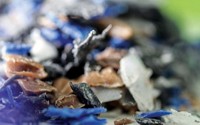Advertisement
Grab your lab coat. Let's get started
Welcome!
Welcome!
Create an account below to get 6 C&EN articles per month, receive newsletters and more - all free.
It seems this is your first time logging in online. Please enter the following information to continue.
As an ACS member you automatically get access to this site. All we need is few more details to create your reading experience.
Not you? Sign in with a different account.
Not you? Sign in with a different account.
ERROR 1
ERROR 1
ERROR 2
ERROR 2
ERROR 2
ERROR 2
ERROR 2
Password and Confirm password must match.
If you have an ACS member number, please enter it here so we can link this account to your membership. (optional)
ERROR 2
ACS values your privacy. By submitting your information, you are gaining access to C&EN and subscribing to our weekly newsletter. We use the information you provide to make your reading experience better, and we will never sell your data to third party members.
Biobased Chemicals
Europeans add renewables to the raw material mix
Companies are launching products made via the mass-balance approach
by Alex Scott
June 15, 2022
| A version of this story appeared in
Volume 100, Issue 22

More European chemical companies are adding biobased or renewable feedstocks to those derived from fossil fuels in a bid to reduce their carbon footprints. Borealis, Ineos, and Perstorp all recently announced they are making products using the so-called mass-balance approach. Other firms involved in mass-balance production include BASF, Covestro, and Neste.
In mass-balance production, fossil and renewable hydrocarbon raw materials are mixed together. No resulting products are made solely from renewable raw materials; instead, companies assign the renewable content to a portion of their output.
Borealis claims it is making the world’s first cross-linked polyethylene pipes derived from waste pulp and food residues via a mass-balance approach. The pipes have a carbon footprint up to 90% lower than those made from fossil fuels, the Austrian firm says.
Ineos has launched mass-balance phenol, acetone, and alphamethylstyrene. The firm will make the products in Gladbeck, Germany, and Antwerp, Belgium, from a blend of renewable, recycled, and fossil-fuel derived cumene. Perstorp’s mass-balance approach involves making 2-ethylhexanol, a plasticizer and diesel fuel enhancer, with 25% renewable or recycled raw material.
“Generally, it makes sense to try and take in recycled or bio-material,” says Agnieszka Brandt-Talbot, a chemistry lecturer at Imperial College London. But she says mass-balance producers should pair the approach with life cycle analysis to ensure the inputs have a benign impact on the environment.
ISCC, a German organization that audits companies’ mass-balance processes, says it has now certified thousands of production sites across a range of industries.
CORRECTION
This story was updated on June 17, 2022, to correct the spelling of Gladbeck. It was originally spelled Gladback.




Join the conversation
Contact the reporter
Submit a Letter to the Editor for publication
Engage with us on Twitter